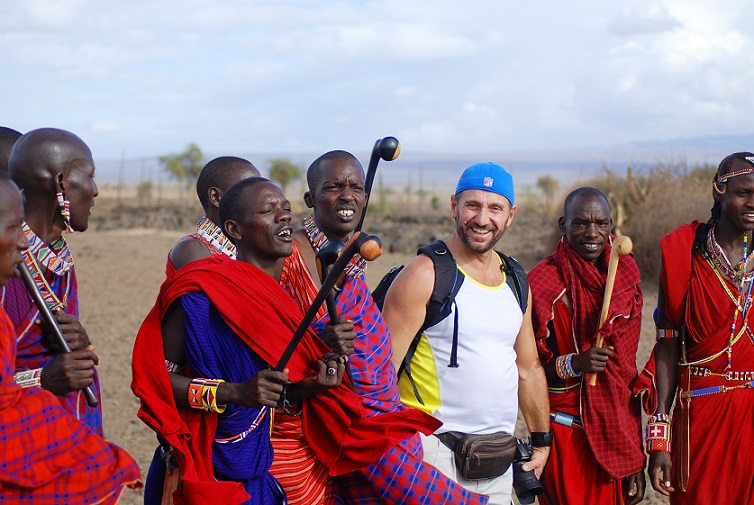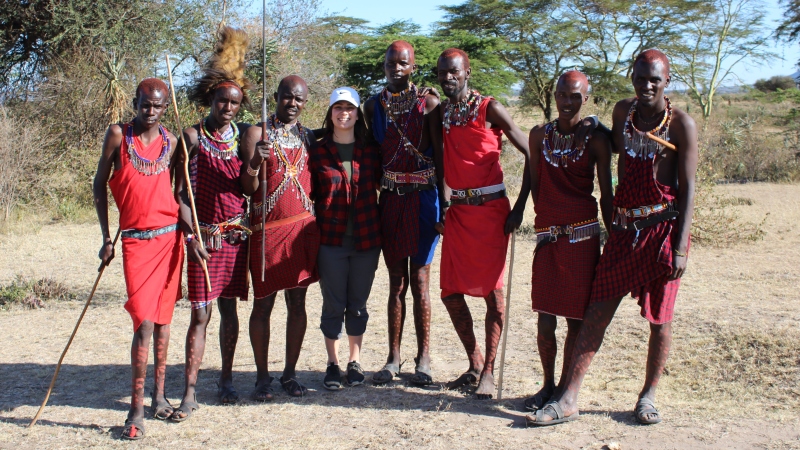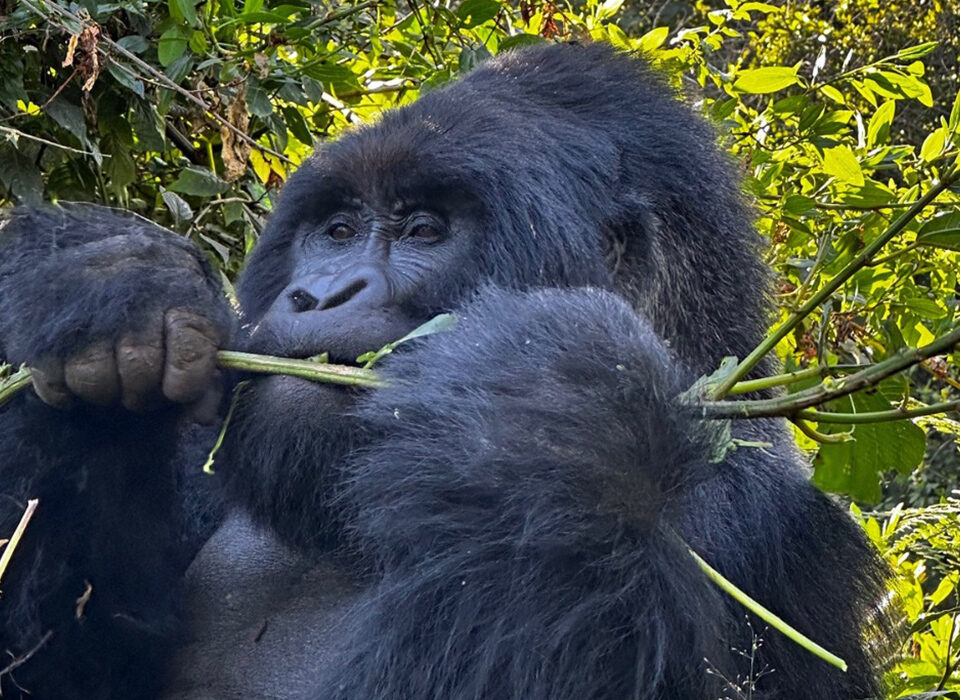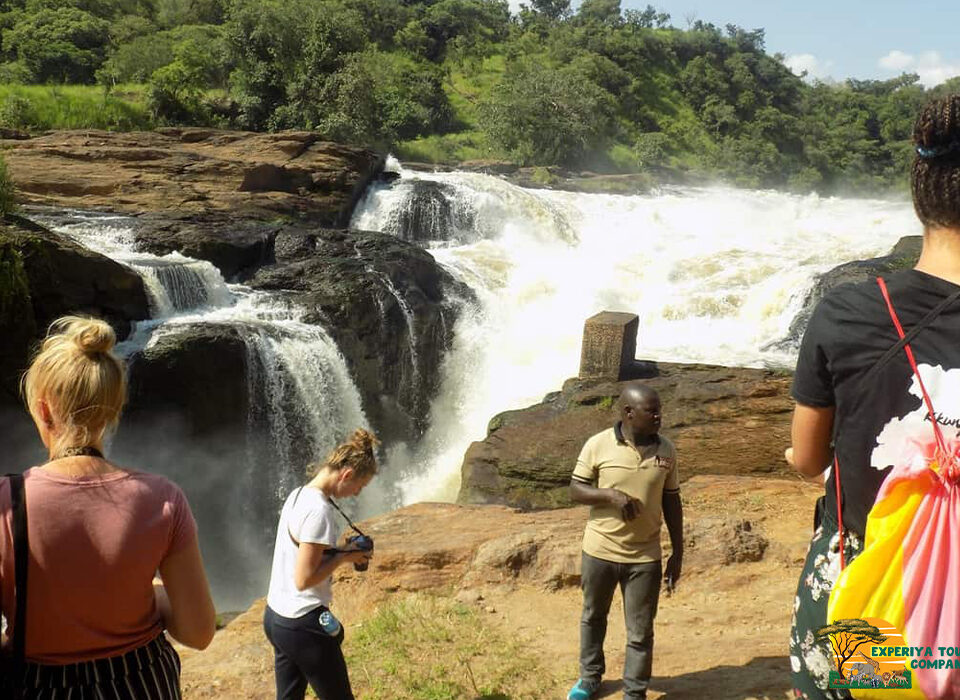
What’s the best street food to try?
November 20, 2025
Can I visit local schools or NGOs?
November 20, 2025Are Kenyans Friendly to Tourists?
One of the most common questions travelers ask before visiting Kenya is: Are Kenyans friendly to tourists? The simple and honest answer is yes—very much so. Kenya is one of Africa’s most welcoming nations, known for its warmth, hospitality, and genuine openness toward visitors. Whether you are wandering through Nairobi’s dynamic neighborhoods, visiting Maasai communities in the savannah, exploring Swahili towns along the coast, or hiking in the Rift Valley, you’ll encounter kindness, curiosity, and helpfulness everywhere you go.
The friendliness of Kenyans is not just cultural—it is woven into the nation’s identity. Kenya receives millions of visitors every year and is home to people from different ethnicities, religions, and backgrounds. This diversity has shaped a society that values respect, connection, and community. Travelers consistently report feeling safe, appreciated, and warmly welcomed during their stay. The smiles, greetings, and easy conversations create a memorable sense of belonging, even for those visiting Kenya for the first time.
The Culture of Hospitality in Kenya
Hospitality is deeply ingrained in Kenyan culture. Across all 40+ ethnic communities, kindness to guests is considered a virtue. Offering food, sharing stories, and welcoming strangers is part of everyday life.
Kenyans often greet visitors with:
Warm smiles
Friendly conversation
Genuine curiosity
Helpful directions
Hospitality in homes, villages, and towns
In both rural and urban settings, visitors are treated with respect and interest. Many Kenyans love sharing their culture, traditions, and stories with guests—a trait that travelers find refreshing and deeply human.
The Warmth of Greetings
Greetings are central to Kenyan communication. Saying “Jambo!” or “Habari?” opens doors instantly. Kenyans appreciate even small efforts made by tourists to greet them.
Common greetings include:
Jambo – Hello
Habari – How are you?
Karibu – Welcome
Asante – Thank you
Sharing a greeting often leads to lively conversation. Kenyans enjoy talking about family, football, weather, tourism, and daily life. For many visitors, these interactions become highlights of their journey.
Kenyans Love to Help
One of the most pleasant surprises for travelers is how willing Kenyans are to assist. Need directions? Someone will not only guide you—they might walk with you. Lost in the market? A passerby will help you find your way. Confused about public transport? A conductor will explain everything.
This helpfulness extends to:
Hotel staff
Safari guides
Restaurant workers
Drivers and boda boda riders
Shopkeepers
Local families
Even strangers often go out of their way to ensure visitors feel comfortable and informed.
Politeness and Respect Are Cultural Norms
Kenyan society places a high value on respect. This is reflected in the way people treat elders, visitors, and those in need. When interacting with tourists, Kenyans typically show polite communication, patience, and genuine kindness.
Using polite phrases is normal, such as:
Pole – Sorry or my sympathies
Karibu tena – Welcome again
Tafadhali – Please
These manners create a soft and warm social environment that travelers immediately notice.
Kenya’s Tourism Industry Encourages Friendliness
Kenya relies heavily on tourism, meaning many people are trained to interact kindly with visitors. Safari guides, lodge staff, hotel teams, and tour drivers are known for their professionalism, knowledge, and friendliness.
Safari guides, in particular, demonstrate exceptional hospitality. They:
Share wildlife facts
Explain culture and history
Ensure safety
Assist with photography
Plan itineraries smoothly
Offer genuine conversations and humor
This professionalism makes tourists feel cared for and welcomed.
Community-Based Tourism Enhances Connections
Kenya has numerous community-run tourism initiatives where travelers meet local people directly:
Maasai villages
Samburu cultural visits
Coastal Swahili towns
Coffee and tea farm tours
Craft and beadwork workshops
These interactions are often warm, insightful, and respectful. Travelers learn that Kenyans take pride in showcasing their culture and lifestyle.

AMBOSELI, KENYA – OCT 13: Group of unidentified African men from Masai tribe dance with a tourist during a traditional show on Oct 13, 2011 in Amboseli, Kenya. They are nomadic and live in villages.
Kenyans Are Curious About Visitors
Curiosity is natural, especially in rural areas. Kenyans enjoy learning about travelers’ home countries, languages, and cultures. Many will ask friendly questions such as:
Where are you from?
How do you find Kenya?
What do you like most about our country?
This curiosity leads to beautiful cross-cultural exchanges that enrich the experience for both locals and tourists.
Safety and Security: Another Reason Kenyans Are Welcoming
While Kenya, like any country, has places where caution is needed, the majority of areas frequented by tourists are safe and welcoming. Communities, businesses, and authorities work hard to ensure travelers feel secure.
Tourists often describe feeling:
Supported
Guided
Safe in public spaces
Cared for by locals
Comfortable exploring
Kenyans tend to watch out for visitors, offering advice when needed.
The Role of Swahili Culture in Hospitality
Swahili culture, especially along the coast in Mombasa, Lamu, and Malindi, is known for warmth, hospitality, and generosity. The concept of “ujamaa”—a sense of family and community—shapes how people treat guests.
Visitors to the coast often praise:
Polite and friendly locals
Peaceful, slow-paced lifestyle
Warm greetings
Invitations to taste local dishes
Generous hosts
Swahili culture makes tourists feel instantly welcomed.
Urban Friendliness: Nairobi and Beyond
Nairobi, despite being a bustling city, is surprisingly friendly. Locals often help travelers navigate transport, recommend places to eat, and offer insights into nightlife and attractions.
Nairobians are known for:
Confidence
Sociability
Energy
Humor
Helpful nature
You’ll find friendly faces everywhere, from taxi drivers to café baristas to young creatives in cultural hubs.
Friendly Encounters During Safaris
Safari destinations like Maasai Mara, Amboseli, Samburu, and Laikipia are particularly known for their warmth. Rangers, trackers, and camp staff form deep, genuine bonds with guests.
Safari visitors often report:
Feeling like family in camps
Personalized service
Friendly storytelling around campfires
Warm smiles from lodge teams
Unforgettable conversations
These interactions are part of what makes Kenyan safaris extraordinary.
Respectful and Welcoming Spirit in Rural Areas
In rural Kenya, hospitality is even more heartfelt. Visitors may be offered:
Food or tea
Stories about village life
Tours of farms
Introductions to family members
Rural communities hold traditional beliefs about treating guests kindly, making these regions some of the most welcoming places for travelers.
Are There Cultural Differences? Yes—but They Enhance the Experience
Some travelers worry about cultural misunderstandings, but Kenyans are often patient and understanding. They appreciate when visitors try to learn:
A few Swahili words
Local customs
Basic etiquette
This effort builds trust and connection.
What Makes Kenyan Hospitality Stand Out?
The friendliness of Kenyans is special because it is:
Genuine
Not forced or commercialized
Rooted in culture
Backed by a strong tourism tradition
Strengthened by daily social values
Warmth comes naturally to Kenyans, making visitors feel at home.
So, Are Kenyans Friendly to Tourists?
Yes—Kenyans are exceptionally friendly to tourists. The hospitality, curiosity, warmth, helpfulness, and respect shown to visitors create an emotionally rich travel experience. Whether you’re in a city, a village, the mountains, or the coast, you’ll find Kenya to be one of the most welcoming destinations in Africa.
Experience Kenyan Hospitality With Experiya Tour Company
For travelers who want to experience Kenya’s warm hospitality safely and authentically, Experiya Tour Company offers trusted, friendly, and professional travel experiences. From cultural visits to safaris, city tours to community interactions, their team ensures you feel welcomed, guided, and cared for throughout your journey. For an enriching and friendly travel experience in Kenya, book your adventure with Experiya Tour Company.




